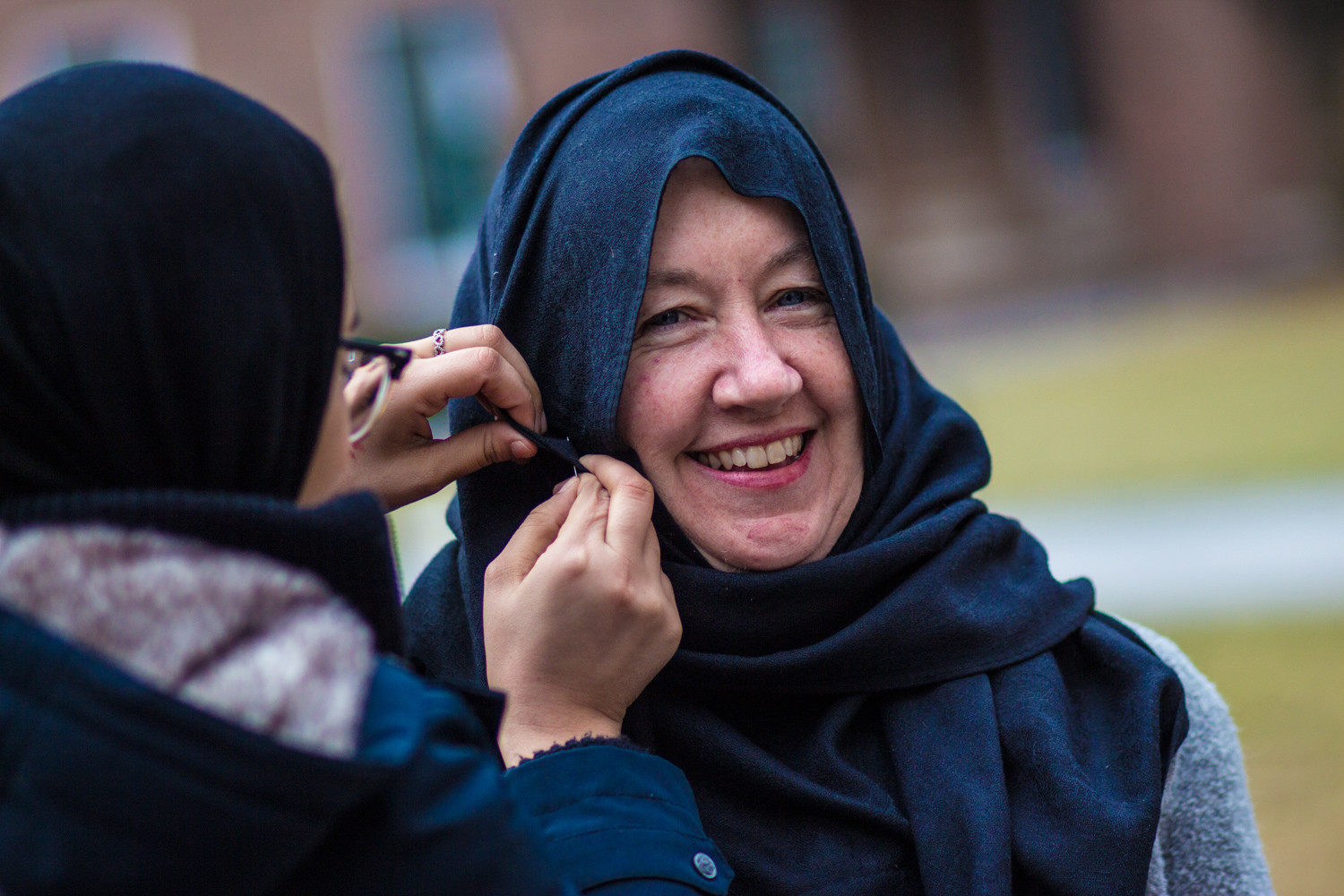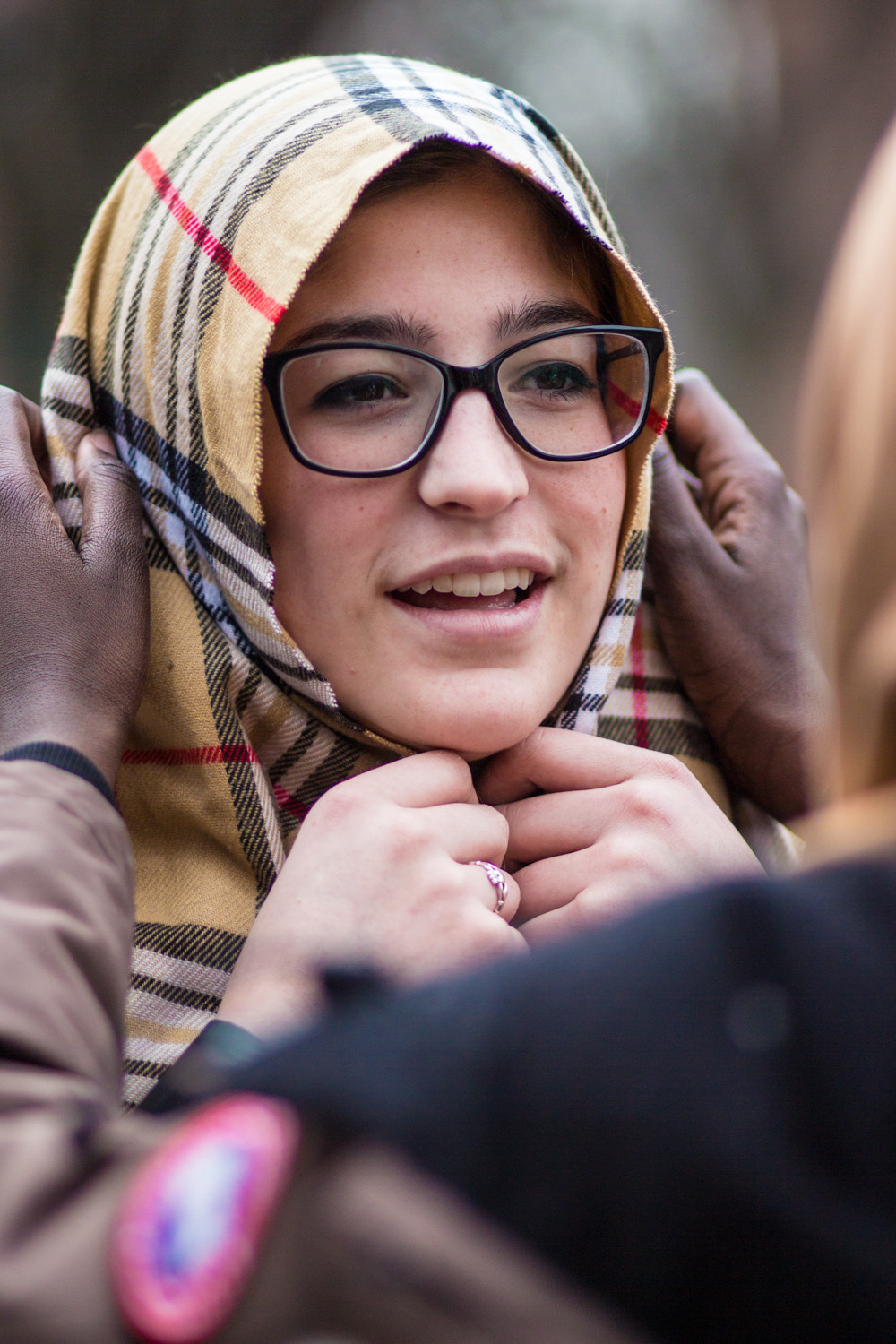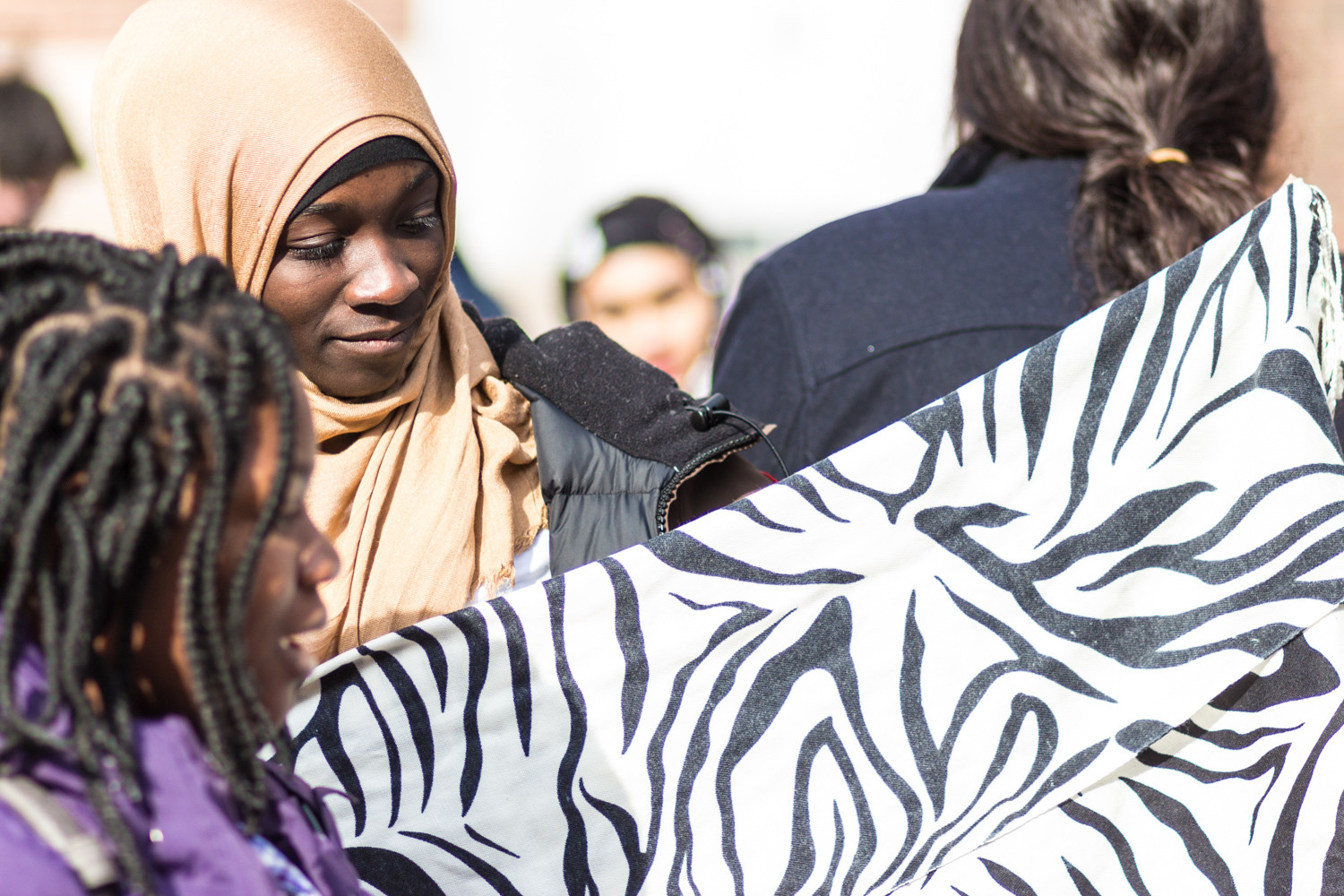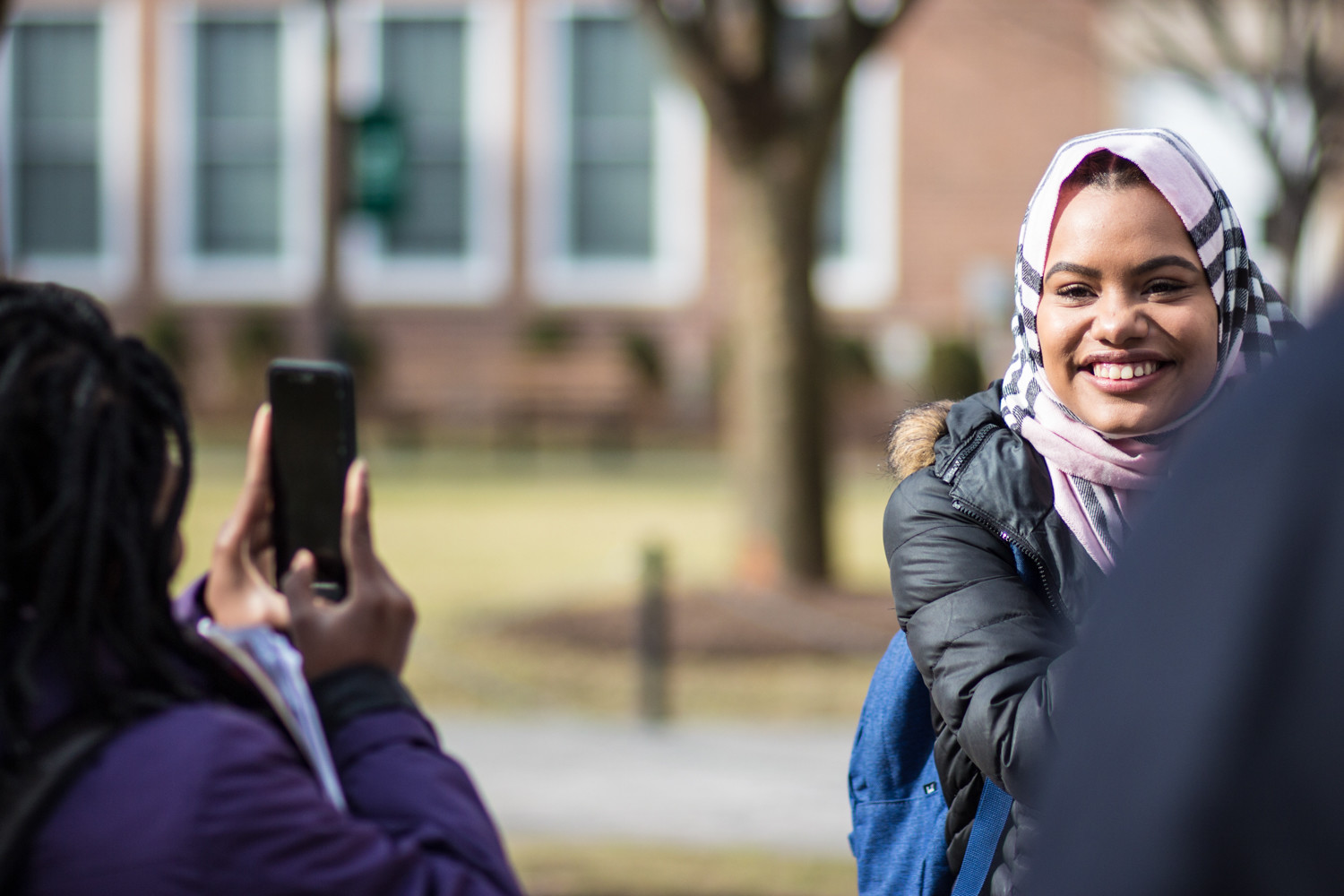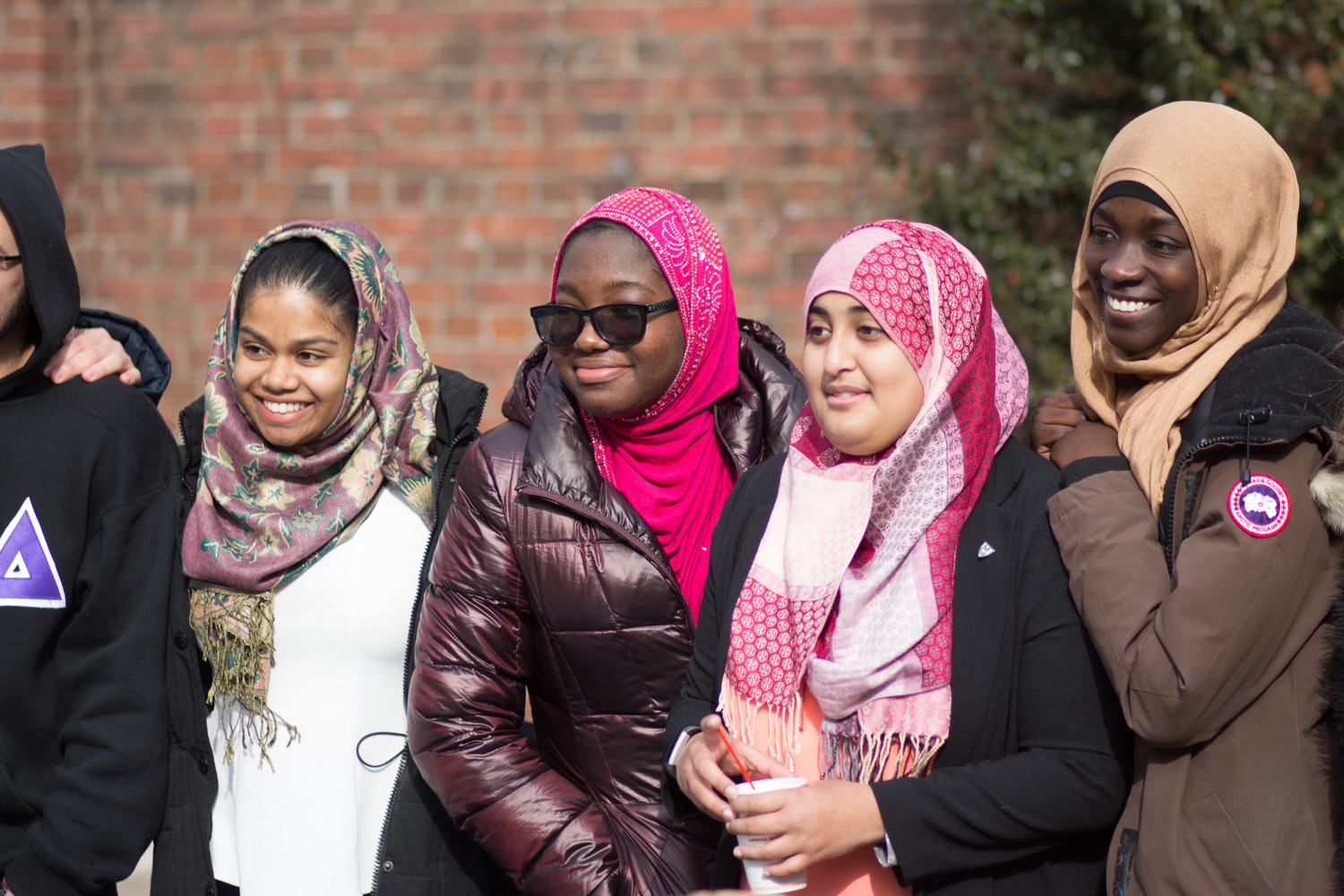A simple scarf is an effective tool for campus cultural communion
The moment Rabea Ali first learned about World Hijab Day, she knew she wanted to do it.
The annual event was created five years ago by Bangladeshi-American activist and entrepreneur Nazma Khan. It’s celebrated every Feb. 1 as a message to combat discrimination against Muslim women. And that captivated Ali.
The Manhattan College sophomore is a Muslim student at a Catholic college. Ali often finds herself surrounded by everyday misunderstandings regarding her faith.
“This is a campus where the misconceptions about Islam are high despite the fact that the Muslim population is high and growing on campus,” she said.
A year after first learning about World Hijab Day, Ali is now president of Manhattan’s Muslim Student Association and has finally realized her goal of bringing World Hijab Day to the Lasallian campus.
Standing behind a small table covered by a variety of scarves, Ali and her fellow members braved the afternoon’s frigid cold, jovially offering their stories and the opportunity to wear the hijab to any woman interested.
Freshman Darby Zelaskowski, who is not a Muslim, was one of many who offered to try a hijab.
“I just want to learn about other people’s cultures and practices,” she said. “I think it’s really cool that we get to do this, even though we are a Catholic campus, which is really important.”
Although the World Hijab Day display table proved to be a hit among those traversing the campus quadrangle, Ali did admit she expected — and received — some pushback from her classmates. In particular, some students questioned whether hosting such an event was appropriate at the school.
Yet Ali persisted, finding much-needed support from the school’s Campus Ministry and Social Action, which provided funds for the scarves and clearing the path for the hijab event to go off without a hitch.
“Whenever I went to them to them and I was like, ‘Hey, I need help with this,’ they were the people who I turned to,” Ali said.
Despite the event’s intent to engender solidarity, some Muslim activists have taken issue with World Hijab Day, arguing it spreads the common misconception that Muslim women must wear the hijab.
“In the name of ‘interfaith,’ these well-intentioned Americans are getting duped,” read one popular op-ed published in The Washington Post, “and unwittingly pushing a platform to put a hijab on every woman.”
But Mehnaz Afridi, an associate professor of religious studies — and director of Manhattan’s Holocaust, Genocide and Interfaith Education Center — said that the issue isn’t as cut and dry as the event’s detractors suggest. As a Muslim woman who has chosen to forgo wearing the hijab, Afridi disagrees with the notion that World Hijab Day advocates for all Muslim women to wear the hijab.
“I think there is a diversity of Muslim women,” Afridi said. “I don’t think women who are wearing the hijab are asking people like me to wear it, and I’m not asking them to take it off. There’s that mutual respect.”
Ali stressed World Hijab Day represented a unique chance to educate her peers about her religion.
“When people get a chance to put (the hijab) on, they ask questions,” she said. “They hear our stories. This gives them that icebreaker to take that step.”
The World Hijab Day event is one in a series of events hosted by the Muslim Student Association on the Manhattan College campus throughout the semester before culminating with Islam Awareness Week beginning April 16. The Holocaust, Genocide and Interfaith Education Center also will host a town hall meeting with Muslim reformer Daisy Khan on Feb. 15 at 6 p.m.
“It’s our job as Muslims,” Ali said. “If not us, then who, to defeat these misconceptions? Especially on this campus, since it is our community.”

